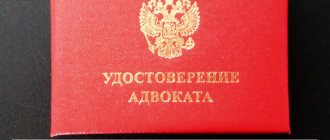Chapter 21 Crimes against property opens with Section 8 of the Criminal Code of the Russian Federation, dedicated to crimes in the economic sphere.
A criminal lawyer in Krasnogorsk will provide you or your relative with qualified legal assistance at all stages of criminal prosecution for crimes against property such as:
Article 158. Theft
Article 158.1. Petty theft committed by a person subject to administrative punishment
Article 159. Fraud
Article 159.1. Lending fraud
Article 159.2. Fraud in receiving payments
Article 159.3. Fraud using electronic means of payment
Article 159.4. Lost power
Article 159.5. Insurance Fraud
Article 159.6. Computer Fraud
Article 160. Misappropriation or embezzlement
Article 161. Robbery
Article 162. Robbery
Article 163. Extortion
Article 164. Theft of items of special value
Article 165. Causing property damage by deception or abuse of trust
Article 166. Wrongful seizure of a car or other vehicle without the purpose of theft
Article 167. Intentional destruction or damage to property
Article 168. Destruction or damage to property due to negligence
Crimes against property, they are also called property (selfish) crimes, are dominant, because the selfish motive and need are very strong and people often commit crimes both for the sake of profit and involuntarily, in order to satisfy their needs. The basis of most crimes against property is theft, that is, the gratuitous unlawful seizure of someone else's property, the conversion of property to one's own benefit, causing damage to the rightful owner of such property. Only the methods of theft differ in the various elements of crimes against property, so Art. 158 of the Criminal Code of the Russian Federation Theft forms part of the offense of secret theft, Art. 159 of the Criminal Code of the Russian Federation Fraud forms part of theft committed by deception or abuse of trust, Art. Art. 161 and 162 of the Criminal Code of the Russian Federation establish liability for open theft and theft by assault with the use of dangerous violence with the aim of committing it, respectively.
CRIMINAL LAWYER call now: ☎ 8 (495) 532-75-40
Property crime lawyer
The main role of a lawyer in cases of crimes against property is to establish the presence or absence of certain qualifying features in a crime, which can significantly influence the type and amount of punishment imposed by the court on the guilty person. An experienced lawyer for property (selfish) crimes will be able to understand all the intricacies of a criminal case under the articles of Chapter 21 of the Criminal Code of the Russian Federation.
The work of law enforcement agencies is aimed at investigating cases in a short time, so often many facts and details that could prove the suspect’s innocence are not taken into account. In addition, the suspect may be subjected to psychological pressure or illegal measures used to admit guilt. The actions of a lawyer for crimes against property will be aimed at including all the facts in the case file and at suppressing illegal methods of investigation.
Theft in the property crime system
Before proceeding to the analysis of the composition of theft, it seems necessary to reveal the concept of theft as a generic category in relation to theft.
Essentially, the concept of theft is given in Note 1 to Art. 158 of the Criminal Code of the Russian Federation. Theft is understood as the illegal gratuitous seizure and (or) conversion of someone else's property for the benefit of the perpetrator or other persons, committed for selfish purposes, causing damage to the owner or other holder of this property.
The concept of theft in Note 1 of Article 158 of the Criminal Code of the Russian Federation contains generic signs of theft inherent in all its forms. In the theory of criminal law and in legislation, it is customary to identify general signs of theft1:
this action is in the form of seizure and (or) recourse in favor of the offender or other persons;
theft is unlawful and gratuitous;
theft always causes damage to the owner or other legal owner;
theft is committed for selfish purposes.
Types of theft mainly differ in the objective side of the crime, in the method of encroachment on someone else's property. The current criminal legislation of the Russian Federation distinguishes the following types of theft: theft (Article 158), fraud (Article 159), embezzlement or
In addition, it should be noted that, along with the concept of “theft,” the doctrine of Russian criminal law used the concept of “abduction,” which covered only certain types of theft and was correlated with the concept of theft as a part of the whole. Thus, Professor V.A. Vladimirov, characterizing the concept of kidnapping, wrote: “The defining feature of kidnapping is the seizure by the thief of someone else’s property from someone else’s possession, where seizure means the unlawful seizure of property, its removal from the owner’s possession, carried out against or against his will.”
The current Criminal Code of the Russian Federation of May 24, 1996 defined theft as the secret theft of someone else's property. In recent years, Article 158 of the 1996 Criminal Code of the Russian Federation has been significantly reformed.
Theft is understood as the illegal gratuitous seizure and (or) conversion of someone else's property for the benefit of the perpetrator or other persons, committed for selfish purposes, causing damage to the owner or other holder of this property. Theft is characterized by 4 signs that are mandatory and the absence of at least one of them allows the act to be considered not as theft, but as another crime, or an act not related to criminal law.
The specificity of theft is characterized by a secret method of activity, which allows us to consider theft the least dangerous of all forms of theft. We can conclude that secrecy is assessed based on objective and subjective criteria. The decisive criterion for establishing secrecy is the subjective criterion - the perception of the perpetrator that the property is being confiscated by him unnoticed[4].
Article 158 “Theft” establishes sanctions for attacks on material assets legally owned by citizens. This standard contains several parts. In Art. 158 part 1 of the Criminal Code of the Russian Federation reveals the main composition. The remaining parts contain qualifying characteristics. In accordance with them, the sanctions established in the first part are tightened. Let us consider further in detail Art. 158 part 1 of the Criminal Code of the Russian Federation. Article 158 Part 1 Characteristics of the act Part of the first specified norm contains the definition of “theft”. The Criminal Code comprehensively reveals its essence. It is worth noting that not all countries have an interpretation of this or that act in their legislation. However, in Russia the norms are structured so that a person not only knows that there is responsibility for illegal acts. Citizens must understand for what crime and what sanction is assigned. The act in question is the secret theft of someone else's property.
The legislation in this formulation indicates the mandatory elements of the crime. First of all, you should pay attention to the first word - secret. The theft of someone else's property within the framework of the norm under consideration is carried out hidden from the legal owner. That is, the owner of material assets does not suspect that he has lost something. Another mandatory feature is that the item must not belong to the criminal under any rights. Article 158 “Theft” is applied in cases where the subject has committed a gratuitous unlawful seizure of an item for personal gain. The norm also applies to cases of transfer of material assets in favor of an attacker or other persons, if as a result of this the owner or other possessor suffered damage. These acts form the corpus delicti of theft.
An act for which sanctions are established by Art. 158 part 1, is always an encroachment on a specific thing. It must refer to objects of the material world that have consumer value. These include money and documents used as their equivalents. At the same time, Art. 158 part 1 applies to encroachments on both movable and immovable objects, as well as those withdrawn from circulation. Article 158 theft Exceptions Documents that do not have a property nature and also do not have consumer value, but which provide the opportunity to receive money from them, cannot be the subject of theft. The latter, in particular, include checks, luggage receipts, passbooks, invoices, etc. Exceptions also include items that provide the right to receive other material assets. For example, these are wardrobe numbers, debit/credit cards, electronic keys to safes, vaults, etc. The results of intellectual work, electricity and heat cannot be the subject of theft.
On the illegality of the act provided for in Art. 158 part 1, says it was committed in violation of current regulations. Gratuitous is the appropriation of a thing without compensation for its use value. Seizure is a real action expressed in the direct movement of an object in the material world from the rightful owner to the perpetrator or other entities. Appeal in favor of an attacker or other persons is an action expressed in the illegal execution of documentation on the transfer of rights from the owner to a criminal and other improper citizens. It is worth saying that theft can be expressed in creating obstacles for the rightful owner to use/dispose of property. Wrongful seizure always occurs against the will of the owner. secret theft of someone else's property
If property is confiscated even in the event of a clear violation of the norms by a person who has an actual or alleged right to it, then it does not constitute theft. For example, the accountant withheld the amount of his earnings from accountable funds. Actions related to the removal of material assets from storage do not fall under this rule if they remained in the fund of their owner or the funds from their sale were used to satisfy the needs of the owner. In these cases, the subject may be held accountable for arbitrariness or abuse of power. Temporary use of material assets for personal purposes, if the objects are not disposed of, also does not constitute a crime. If there are appropriate grounds, such actions are qualified according to norms 165 and 166.
The direct object of theft is social relations that protect the property of a specific person (private, state, municipal and other types), which has been criminally encroached upon. The subject of theft can be any property, both movable and immovable, but only someone else’s, i.e. not in the property or legal possession of the perpetrator.
The elements of theft by their design are material and contain 3 main elements: the act, the consequences and the cause-and-effect relationship between them. The act is characterized by seizure, which is understood as the unlawful gratuitous extraction (exclusion, removal, allocation) of property from the possession (funds) of the owner with its simultaneous transfer to the actual illegal possession of the thief or other persons. Consequences are characterized by causing damage to the owner or other owner of the property. Significant damage is determined taking into account the property status of the victim, but cannot be less than two thousand five hundred rubles. Significant damage to a legal entity is determined each time taking into account its financial situation. It seems necessary to develop a criterion for assessing the infliction of significant damage to a legal entity. The theft is considered completed from the moment the consequences occur in the form of causing damage to the owner or other legal owner of the property and the perpetrator has the opportunity to dispose of the stolen property at his own discretion[5].
Theft is one of those acts that consists of the direct illegal taking of someone else's property, committed for selfish motives and for the purpose of unjust enrichment at the expense of this property, and without the subjects using their official position, and is not associated with a violation of economic ties and relations in the economic sphere .
When a theft is committed by a group of persons by prior conspiracy, it is characterized by the presence of two or more persons who can be recognized as the subjects of the theft, a preliminary conspiracy between them, and the joint commission of this crime. Theft committed by an organized group presupposes the presence of a stable group consisting of two or more persons united by intent to commit one or more crimes. A stable group is characterized, as a rule, by a high level of organization, planning and careful preparation of the crime, distribution of roles between accomplices, and so on.
Theft can be distinguished from fraud by method. Unlike a thief, who hopes that his actions will go unnoticed, the fraudster bets that, under the influence of deception or breach of trust, the victim himself will transfer his property to him. Theft can be distinguished from embezzlement and embezzlement by the subject of the crime. In case of misappropriation and embezzlement, the subject is a special one, that is, the person to whom the property was legally entrusted. We can conclude that the main defining feature of robbery, distinguishing it from theft, is the method of committing the crime, that is, the open nature of the actions of the perpetrator, or (which is the same) the absence of a sign of secrecy. Sometimes the problem arises of distinguishing between theft and deliberate destruction or damage to property. For example, destruction of property may be a way of disposing of stolen property, which requires qualification only under Article 158 of the Criminal Code (if the culprit destroys stolen property that he cannot use). The distinction is made on the objective and subjective side of crimes. Depending on the categories of crime, theft is classified by the legislator as a crime of minor gravity (part 1 of article 158), moderate gravity (part 2 of article 158) and serious crime (parts 3, 4 of article 158).
Before proceeding to the analysis of the composition of theft, it seems necessary to reveal the concept of theft as a generic category in relation to theft.
Essentially, the concept of theft is given in Note 1 to Art. 158 of the Criminal Code of the Russian Federation. Theft is understood as the illegal gratuitous seizure and (or) conversion of someone else's property for the benefit of the perpetrator or other persons, committed for selfish purposes, causing damage to the owner or other holder of this property.
The concept of theft in Note 1 of Article 158 of the Criminal Code of the Russian Federation contains generic signs of theft inherent in all its forms. In the theory of criminal law and in legislation, it is customary to identify general signs of theft1:
this action is in the form of seizure and (or) recourse in favor of the offender or other persons;
theft is unlawful and gratuitous;
theft always causes damage to the owner or other legal owner;
theft is committed for selfish purposes.
Types of theft mainly differ in the objective side of the crime, in the method of encroachment on someone else's property. The current criminal legislation of the Russian Federation distinguishes the following types of theft: theft (Article 158), fraud (Article 159), embezzlement or
In addition, it should be noted that, along with the concept of “theft,” the doctrine of Russian criminal law used the concept of “abduction,” which covered only certain types of theft and was correlated with the concept of theft as a part of the whole. Thus, Professor V.A. Vladimirov, characterizing the concept of kidnapping, wrote: “The defining feature of kidnapping is the seizure by the thief of someone else’s property from someone else’s possession, where seizure means the unlawful seizure of property, its removal from the owner’s possession, carried out against or against his will.”
The current Criminal Code of the Russian Federation of May 24, 1996 defined theft as the secret theft of someone else's property. In recent years, Article 158 of the 1996 Criminal Code of the Russian Federation has been significantly reformed.
Theft is understood as the illegal gratuitous seizure and (or) conversion of someone else's property for the benefit of the perpetrator or other persons, committed for selfish purposes, causing damage to the owner or other holder of this property. Theft is characterized by 4 signs that are mandatory and the absence of at least one of them allows the act to be considered not as theft, but as another crime, or an act not related to criminal law.
The specificity of theft is characterized by a secret method of activity, which allows us to consider theft the least dangerous of all forms of theft. We can conclude that secrecy is assessed based on objective and subjective criteria. The decisive criterion for establishing secrecy is the subjective criterion - the perception of the perpetrator that the property is being confiscated by him unnoticed[4].
Article 158 “Theft” establishes sanctions for attacks on material assets legally owned by citizens. This standard contains several parts. In Art. 158 part 1 of the Criminal Code of the Russian Federation reveals the main composition. The remaining parts contain qualifying characteristics. In accordance with them, the sanctions established in the first part are tightened. Let us consider further in detail Art. 158 part 1 of the Criminal Code of the Russian Federation. Article 158 Part 1 Characteristics of the act Part of the first specified norm contains the definition of “theft”. The Criminal Code comprehensively reveals its essence. It is worth noting that not all countries have an interpretation of this or that act in their legislation. However, in Russia the norms are structured so that a person not only knows that there is responsibility for illegal acts. Citizens must understand for what crime and what sanction is assigned. The act in question is the secret theft of someone else's property.
The legislation in this formulation indicates the mandatory elements of the crime. First of all, you should pay attention to the first word - secret. The theft of someone else's property within the framework of the norm under consideration is carried out hidden from the legal owner. That is, the owner of material assets does not suspect that he has lost something. Another mandatory feature is that the item must not belong to the criminal under any rights. Article 158 “Theft” is applied in cases where the subject has committed a gratuitous unlawful seizure of an item for personal gain. The norm also applies to cases of transfer of material assets in favor of an attacker or other persons, if as a result of this the owner or other possessor suffered damage. These acts form the corpus delicti of theft.
An act for which sanctions are established by Art. 158 part 1, is always an encroachment on a specific thing. It must refer to objects of the material world that have consumer value. These include money and documents used as their equivalents. At the same time, Art. 158 part 1 applies to encroachments on both movable and immovable objects, as well as those withdrawn from circulation. Article 158 theft Exceptions Documents that do not have a property nature and also do not have consumer value, but which provide the opportunity to receive money from them, cannot be the subject of theft. The latter, in particular, include checks, luggage receipts, passbooks, invoices, etc. Exceptions also include items that provide the right to receive other material assets. For example, these are wardrobe numbers, debit/credit cards, electronic keys to safes, vaults, etc. The results of intellectual work, electricity and heat cannot be the subject of theft.
On the illegality of the act provided for in Art. 158 part 1, says it was committed in violation of current regulations. Gratuitous is the appropriation of a thing without compensation for its use value. Seizure is a real action expressed in the direct movement of an object in the material world from the rightful owner to the perpetrator or other entities. Appeal in favor of an attacker or other persons is an action expressed in the illegal execution of documentation on the transfer of rights from the owner to a criminal and other improper citizens. It is worth saying that theft can be expressed in creating obstacles for the rightful owner to use/dispose of property. Wrongful seizure always occurs against the will of the owner. secret theft of someone else's property
If property is confiscated even in the event of a clear violation of the norms by a person who has an actual or alleged right to it, then it does not constitute theft. For example, the accountant withheld the amount of his earnings from accountable funds. Actions related to the removal of material assets from storage do not fall under this rule if they remained in the fund of their owner or the funds from their sale were used to satisfy the needs of the owner. In these cases, the subject may be held accountable for arbitrariness or abuse of power. Temporary use of material assets for personal purposes, if the objects are not disposed of, also does not constitute a crime. If there are appropriate grounds, such actions are qualified according to norms 165 and 166.
The direct object of theft is social relations that protect the property of a specific person (private, state, municipal and other types), which has been criminally encroached upon. The subject of theft can be any property, both movable and immovable, but only someone else’s, i.e. not in the property or legal possession of the perpetrator.
The elements of theft by their design are material and contain 3 main elements: the act, the consequences and the cause-and-effect relationship between them. The act is characterized by seizure, which is understood as the unlawful gratuitous extraction (exclusion, removal, allocation) of property from the possession (funds) of the owner with its simultaneous transfer to the actual illegal possession of the thief or other persons. Consequences are characterized by causing damage to the owner or other owner of the property. Significant damage is determined taking into account the property status of the victim, but cannot be less than two thousand five hundred rubles. Significant damage to a legal entity is determined each time taking into account its financial situation. It seems necessary to develop a criterion for assessing the infliction of significant damage to a legal entity. The theft is considered completed from the moment the consequences occur in the form of causing damage to the owner or other legal owner of the property and the perpetrator has the opportunity to dispose of the stolen property at his own discretion[5].
Theft is one of those acts that consists of the direct illegal taking of someone else's property, committed for selfish motives and for the purpose of unjust enrichment at the expense of this property, and without the subjects using their official position, and is not associated with a violation of economic ties and relations in the economic sphere .
When a theft is committed by a group of persons by prior conspiracy, it is characterized by the presence of two or more persons who can be recognized as the subjects of the theft, a preliminary conspiracy between them, and the joint commission of this crime. Theft committed by an organized group presupposes the presence of a stable group consisting of two or more persons united by intent to commit one or more crimes. A stable group is characterized, as a rule, by a high level of organization, planning and careful preparation of the crime, distribution of roles between accomplices, and so on.
Theft can be distinguished from fraud by method. Unlike a thief, who hopes that his actions will go unnoticed, the fraudster bets that, under the influence of deception or breach of trust, the victim himself will transfer his property to him. Theft can be distinguished from embezzlement and embezzlement by the subject of the crime. In case of misappropriation and embezzlement, the subject is a special one, that is, the person to whom the property was legally entrusted. We can conclude that the main defining feature of robbery, distinguishing it from theft, is the method of committing the crime, that is, the open nature of the actions of the perpetrator, or (which is the same) the absence of a sign of secrecy. Sometimes the problem arises of distinguishing between theft and deliberate destruction or damage to property. For example, destruction of property may be a way of disposing of stolen property, which requires qualification only under Article 158 of the Criminal Code (if the culprit destroys stolen property that he cannot use). The distinction is made on the objective and subjective side of crimes. Depending on the categories of crime, theft is classified by the legislator as a crime of minor gravity (part 1 of article 158), moderate gravity (part 2 of article 158) and serious crime (parts 3, 4 of article 158).
Defense in cases of crimes against property
In most cases, the tactics of defense and behavior correctly chosen at the initial stage of the investigation, subsequently expressed in the testimony of the client, given by him to the investigator during interrogation as a suspect and accused, often predicts the outcome of the entire criminal case and allows the lawyer to achieve the necessary and favorable outcome for the client. Protection for crimes against property is necessary from the very initial stage of criminal prosecution, starting with verification in accordance with Art. Art. 144-145 of the Code of Criminal Procedure of the Russian Federation, and if you learned about criminal liability during your arrest, then from that moment, as quickly as possible, provide yourself or your relative with the protection of a lawyer. To contact a lawyer, call the phone number listed on the website.
Raider seizure - article of the Criminal Code of the Russian Federation
Raiding in the Criminal Code of the Russian Federation is not enshrined in a separate article as a crime, but more than 10 different articles provide for liability for certain actions of illegal seizure of property. The most common article that is used in practice when qualifying the actions of raiders is Article 159 of the Criminal Code of the Russian Federation (fraud); The very disposition of this article, which provides for liability for the theft of someone else’s property through deception or abuse of trust, fully covers the actions of attackers to take over someone else’s business. In addition to this article, the actions of raiders are often qualified under the following articles of the Criminal Code of the Russian Federation (in combination with Article 159 or separately from it):
- 179 of the Criminal Code of the Russian Federation, if the raider forces the owner of the organization to enter into a transaction for the alienation of property under the threat of violence;
- 170.1 - in cases where knowingly false data is submitted to the registration authority in order to enter false information into the Unified State Register of Legal Entities, the securities register or the depository accounting system;
- 170 - in relation to officials who register obviously illegal transactions, distorting information from the Unified State Register of Legal Entities and the state cadastre;
- 173.1 and 173.2 - when used in the process of capturing shell companies and dummies;
- 183 - in case of illegal receipt of information constituting commercial, tax or banking secrets;
- 185.5 - falsification of a decision of the general meeting or board of directors of the company;
- 186 - regarding the production and sale of securities;
- 196 and 197 - deliberate and fictitious bankruptcy;
- 303 - falsification of evidence - when submitting forged documents to the court in order to obtain an unjust act;
- 327 - forgery of documents;
- Part 3 Art. 299 - illegal initiation of a criminal case in order to obstruct business activities.
The above list is incomplete; depending on the specific circumstances of the case and the schemes used, the investigative authorities can qualify the actions of raiders and their accomplices who commit related socially dangerous acts in the process of seizing property, under other articles of the Criminal Code of the Russian Federation, providing for liability for tax and other crimes in the economic sphere activities, crimes against property and malfeasance, crimes against justice, as well as against the life and health of citizens.
Deputies and senators of the Federal Assembly of the Russian Federation have repeatedly proposed to include in the Criminal Code of the Russian Federation Article 159.7 of the Criminal Code of the Russian Federation, which provides for liability directly for raider seizure, and the punishment was proposed to be severe - up to 20 years in prison with confiscation of property. It seems that due to the prevalence of this act and its increased social danger, such proposals are completely justified; As we noted above, the current version of the disposition of Article 159 of the Criminal Code of the Russian Federation fully covers the actions of offenders to seize someone else's property, and therefore there is no need to introduce a separate article into the code providing for liability for raiding. Meanwhile, the sanction of part 4 of Art. 159 of the Criminal Code of the Russian Federation, according to which raiders are held accountable, provides for a maximum penalty of imprisonment for up to 10 years, classifying these crimes as serious. Introduction of a separate part in Art. 159 of the Criminal Code of the Russian Federation in relation to raiders would make it possible to distinguish this act as a type of fraud, providing for increased liability for committing such acts and classifying them as especially serious crimes. All this would contribute to maintaining the harmony of the criminal legislation system, would facilitate the practical application of the article in this part, and would also contribute to a more complete implementation of the preventive function of the criminal law.
If a new part of Art. 159 of the Criminal Code of the Russian Federation, it would be quite logical to classify the investigation of criminal cases of this category as the jurisdiction of investigators of the Investigative Committee of the Russian Federation, which includes the bulk of crimes in the field of economic activity; this, in our opinion, would have a positive impact both on the quality of the investigation and on the elimination of disputes about jurisdiction and compliance with deadlines when conducting verifications of reports of raider takeovers.







